The week of October 13–19, marked a high-octane chapter for India’s automotive industry, combining festive momentum, massive investment commitments, strategic alliances, and global trade friction.
A resurgent market sentiment peaked on Dhanteras 2025, with over 1 lakh passenger vehicles likely delivered across the two-day window, generating more than $1 billion in revenue. Maruti Suzuki led the charge, forecasting its best-ever Dhanteras with more than 51,000 deliveries, powered by GST 2.0-driven affordability and record consumer confidence.
On the corporate front, Hyundai Motor India unveiled an ambitious ₹45,000-crore investment plan through FY30, anchored around 26 product launches, eight new hybrid models, a made-in-India electric SUV by FY27, and the debut of the Genesis luxury brand. The company aims to make India its second-largest market globally and a central pillar of its export and EV strategy.
In a parallel strategic shift, Skoda-VW Auto India entered talks with the JSW Group for a potential equity partnership to fund its next-generation CMP21-based SUV portfolio, highlighting a new wave of OEM-industrial tie-ups shaping the industry’s future.
The week also saw major policy and legal developments, from FADA’s ₹2,500-crore cess dispute reaching the Supreme Court and Uttar Pradesh ending road-tax waivers on EVs and hybrids, to China dragging India to the WTO over EV subsidies. The Centre, meanwhile, announced steps to secure rare earth mineral supply chains through new trade deals and exploration initiatives.
Product and technology news remained brisk: Ola Electric expanded beyond mobility with its Shakti energy storage systems, TVS entered the adventure motorcycle segment with the Apache RTX, Renault revealed Kwid EV, and Blue Energy Motors set a target of 30,000 e-trucks in five years.
As the industry accelerates into the festive quarter, one thing is clear: India’s auto sector is entering a decisive new phase, driven by record demand, aggressive localisation, and global ambitions that stretch beyond traditional boundaries.
Here’s the detailed round-up of all major developments from this week:
Dhanteras 2025 Ignites Record Auto Sales, Over 1 Lakh Cars Likely Delivered

India’s automotive industry is celebrating a historic Dhanteras, with over one lakh passenger vehicles likely to be delivered across the two-day festive window. The milestone translates into an estimated ₹8,000–₹8,500 crore (over $1 billion) in turnover, underscoring the combined force of festive optimism, GST 2.0–driven affordability, and strong consumer confidence.
According to Partho Banerjee, Senior Executive Officer (Marketing & Sales), Maruti Suzuki India Ltd, the country’s largest carmaker is set to post its highest-ever Dhanteras performance. “We have already completed around 41,000 deliveries today and expect another 10,000 tomorrow, taking the total to about 51,000 vehicles — our highest ever,” he said.
FADA Moves Supreme Court Over ₹2,500-Crore Cess Issue After GST 2.0
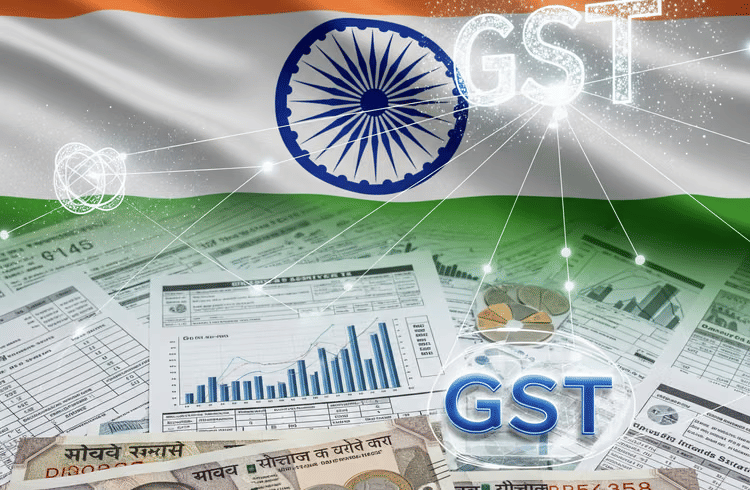
The Federation of Automobile Dealers Associations of India has approached the Supreme Court to seek relief over Rs 2,500 crore impact to auto dealers, from compensation cess paid on vehicle inventory purchased before the rollout of GST 2.0–which removed cess.
“With the compensation cess now nil-rated, auto dealers across India suddenly find that their tax-paid credits worth over ₹2,500 crore risk being wiped out, with no way to adjust or refund them. These aren’t just ledger entries. They’re the working capital that keeps showrooms open, salaries paid, and 50 lakh families secure,” said Saharsh Damani, CEO of FADA, in a LinkedIn post.
“FADA has now approached the Hon’ble Supreme Court of India — not against GST 2.0, but for fairness and trust,” he added. “Our plea is simple: protect what’s rightfully earned. Build a bridge so genuine, tax-paid credits don’t disappear overnight.”
Government Announces Measures to Boost Rare Earth Mineral Supply

The government is implementing measures to strengthen the supply of rare earth minerals through multiple strategic initiatives, Commerce and Industry Minister Piyush Goyal announced on Friday.
According to PTI, the approach includes negotiating trade agreements with Chile and Peru, enhancing domestic exploration activities, and supporting startups engaged in recycling and processing operations. Critical minerals such as copper, lithium, nickel, and cobalt serve as essential raw materials for industries ranging from electronics manufacturing to defense equipment production, as well as clean energy technologies including electric vehicles and battery manufacturing.
India has completed a trade agreement with Australia and is currently conducting negotiations with Chile and Peru, both countries with significant reserves of these minerals. An Indian delegation is visiting these South American nations for the next round of trade discussions, PTI reported.
China Drags India to WTO Over Subsidies for EVs, Cells
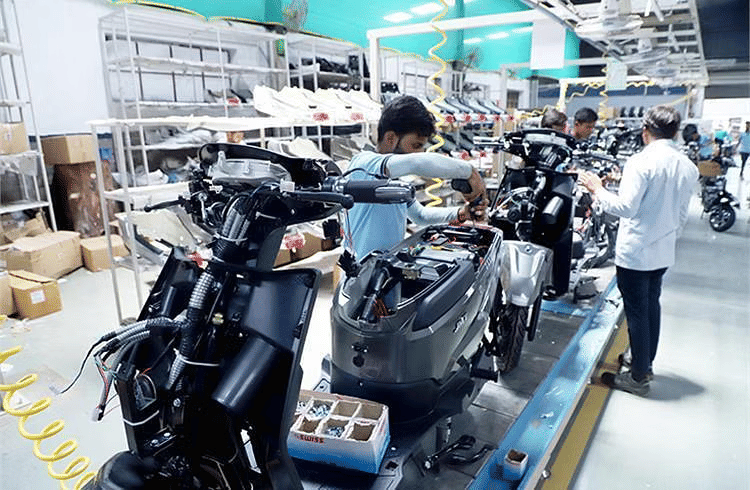
At a time when automotive and cell manufacturing industries are pushing the government for more incentives for localisation, China has raised a complaint against India at the World Trade Organization (WTO), alleging that New Delhi’s subsidies for electric vehicle (EV) and battery cell manufacturing violate global trade rules.
According to a statement from China’s commerce ministry, China on Wednesday requested consultations with India at the WTO regarding India’s subsidy measures in the electric vehicle and battery sectors. Requesting consultations is the first step in the WTO dispute settlement process.
Indian provides subsidies for faster adoption of electric vehicles and supply chain localisation through PM E-Drive and production-linked incentive (PLI) schemes for auto, components and cell manufacturing. These incentives are linked to domestic value addition criteria, which mandate a certain level of localization and domestic manufacturing within a product.
Uttar Pradesh Ends Road Tax Waiver for EVs, Hybrids as Policy Expires
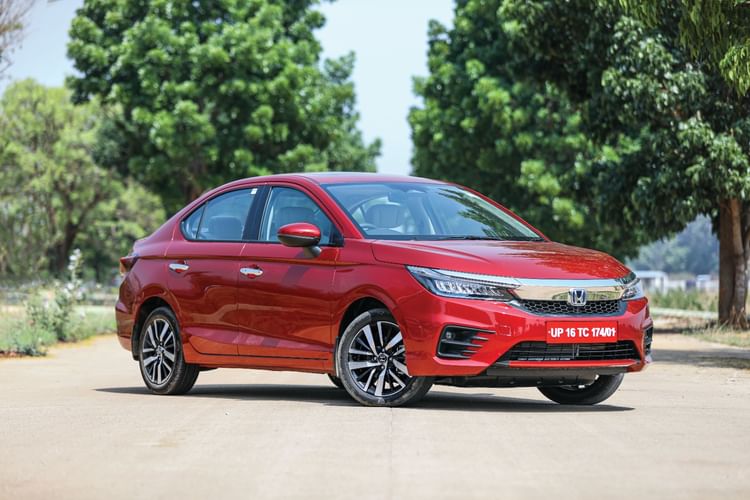
The Uttar Pradesh government has allowed its road tax and registration fee waiver for electric and hybrid vehicles to lapse with effect from October 13, 2025, choosing not to extend the incentives under its 2022 Electric Vehicle Policy. The waiver offered full exemption from road tax and registration charges for electric vehicles and, from mid-2024, for strong and plug-in hybrids as well. With the exemption period now expired, buyers of both new EVs and hybrids will face higher on-road prices going forward.
New car dealers in the state have confirmed that every new vehicle registration from October 14 onward once again attracts the standard 8–10% road tax, depending on the ex-showroom price bracket.
Hyundai Motor India to Invest ₹45,000 Crore by FY2030, Targets ₹1 Lakh-Crore Revenue
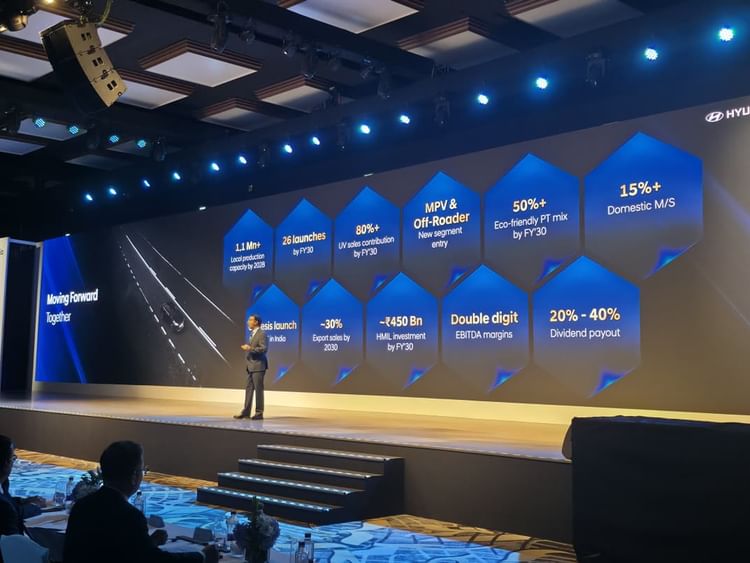
Hyundai Motor India Limited (HMIL) has unveiled its most comprehensive growth blueprint yet, announcing an investment of ₹45,000 crore through FY2030 to strengthen its presence across product, technology, and manufacturing fronts. The move signals the South Korean carmaker’s long-term commitment to India — a market it now sees as central to its global strategy.
The announcement came at Hyundai’s first-ever CEO Investment Day in Mumbai, where the company outlined its Vision 2030 roadmap anchored around India-centric products, advanced manufacturing, and sustainable mobility. The plan, spanning 26 product launches, will make India Hyundai’s second-largest region globally and reinforce its role as a key export hub contributing up to 30 percent of global shipments.
India to Rise to Hyundai’s Second Biggest Market by 2030
Tarun Garg to Take Over as Hyundai India MD, CEO from January 1, 2026
“We Would Like India to Become a Global Hub for Both ICE and Electric Vehicles”: HMC CEO José Muñoz
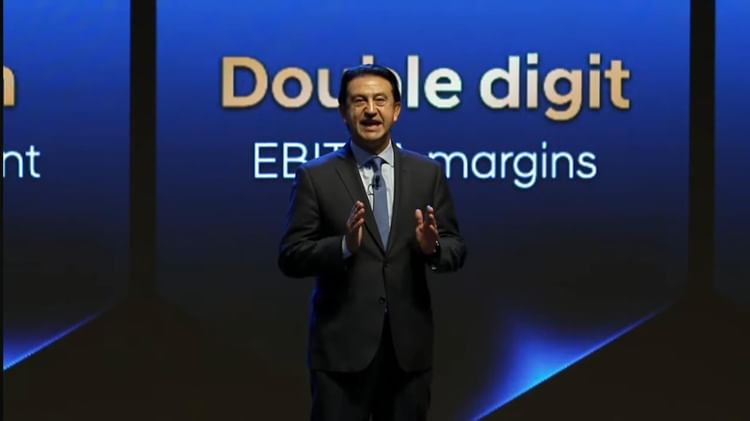
Hyundai Motor Company’s Global President and CEO José Muñoz said on Wednesday that India is on track to become one of the most competitive electric vehicle (EV) hubs in the world, backed by its growing technological depth, localisation push and favourable policy direction.
“Without a doubt, India not only could be, but is going to be definitely one of the most, if not the most, competitive EV hub in the world,” Muñoz said during Hyundai Motor India’s first-ever CEO Investment Day in Mumbai.
Muñoz said the transition to electric vehicles was being driven by technological superiority, not regulation.
Hyundai Targets 30% Export Production Share From India by 2030
Hyundai Plans 8 Hybrid Models by FY30, to Contribute 16% in Product Mix
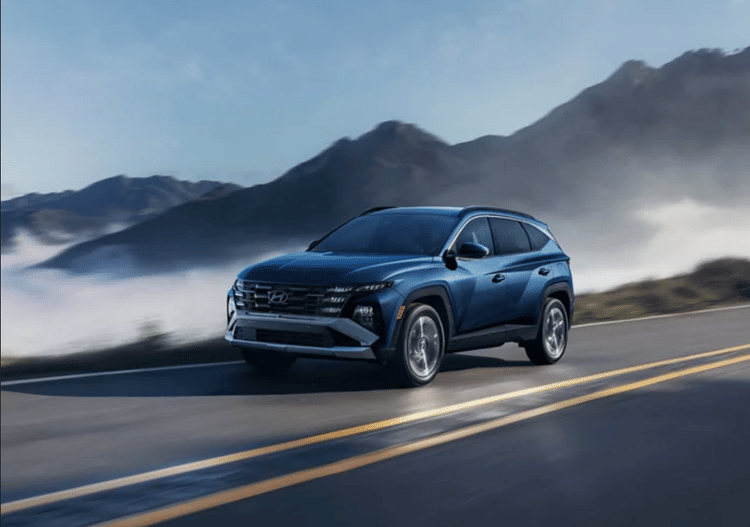
Hyundai Motor India is making a massive pivot in its product strategy with plans to introduce eight hybrid models by the end of the decade.
Having previously focused on pure internal combustion (ICE), CNG, and battery electric vehicles (BEVs), the automaker is now placing a significant bet on the hybrid segment, aiming for these models to account for 16% of its total product mix.
The eight hybrid models are part of the 26 launches that the company is planning by 2029-30, which include derivatives & facelifts. According to an investor presentation, the South Korean automaker is eying 52% “eco-friendly” product mix by the end of this decade.
Hyundai to Launch First India-Designed, Built Electric SUV by 2027, Says CEO Munoz
Hyundai to Launch Genesis Brand in India in 2027; to be Made in India
Skoda-VW in talks with JSW Group for joint operations in India
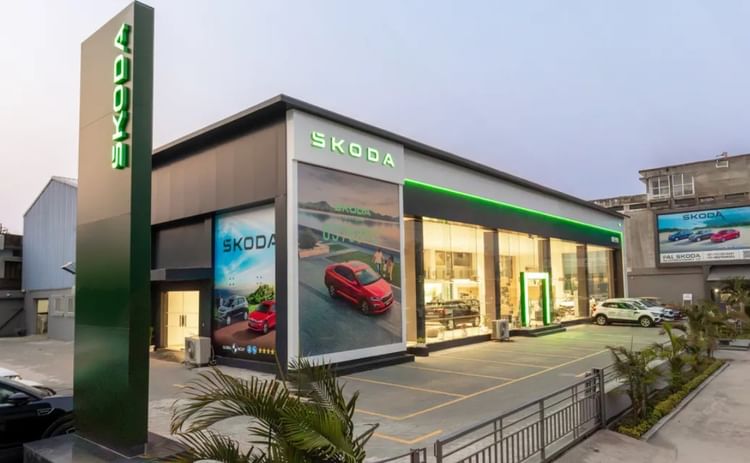
Skoda-VW Auto India Pvt Ltd (SVAIPL) has entered into discussions with the JSW Group for a strategic equity partnership aimed at funding and developing its next-generation SUV portfolio based on the CMP21 platform. The deal, if finalized, could redefine Skoda-VW’s growth prospects in India, combining VW’s technology with JSW’s financial and industrial strength.
The Volkswagen Group’s Indian subsidiary abandoned the costly MQB A0 37 platform in favor of the more versatile CMP21 architecture, projected to support a range of internal combustion, hybrid, and electric SUVs. However, with the project’s estimated investment exceeding €1 billion, VW Group has made it clear that Skoda-VW India must bring in a local equity partner to share the financial burden and gain project approval.
JSW Group Reshuffles Auto Boards, Reorganises Component Arm Ahead of Car and Truck Launch
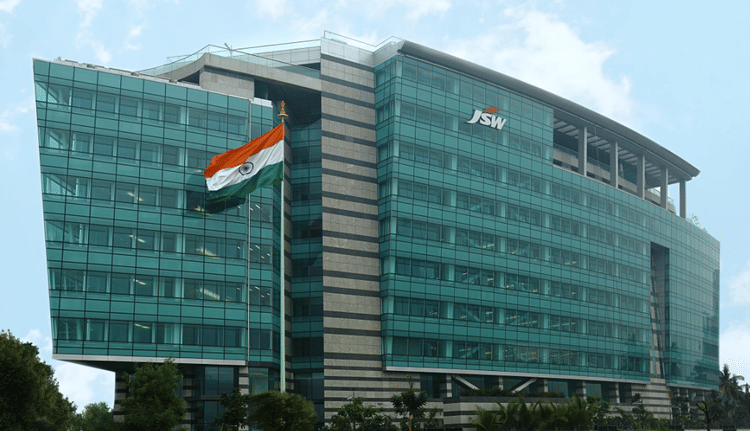
The Sajjan Jindal-led JSW Group has overhauled the boards of at least two of its automotive subsidiaries and changed the holding company of its components business as the steel-to-energy conglomerate accelerates plans to launch cars and trucks in the next financial year.
In a bid to streamline operations and sharpen focus on individual verticals, the chief executives of JSW’s passenger vehicle and commercial vehicle businesses stepped down from the board of the group’s auto parent company, JSW Green Mobility, in August, according to filings with the Ministry of Corporate Affairs.
In their place, Rajiv Mehta, Chief of Business at JSW Green Mobility, joined the board. Mehta, who spent 27 years at Mahindra & Mahindra before joining JSW in September 2023, is expected to play a key role in steering the company’s automotive ambitions. The other board members include Manoj Mohta, CEO of JSW Holdings, and Bhushan Prasad, CFO at JSW Projects.
Tata Motors Stock Adjusts to Demerger; Shares of PV Unit Start Trading at Rs 400
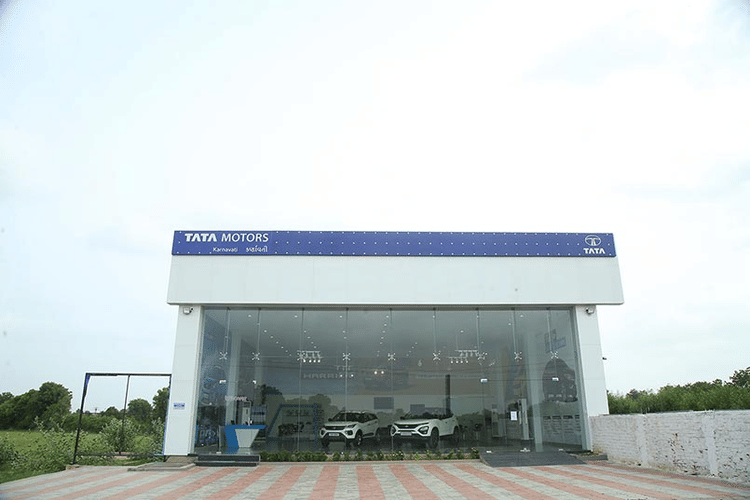
Shares of Tata Motors Ltd, representing only the company’s passenger vehicle (PV) business, began trading on Tuesday at a discovered price of Rs 400 on the NSE, following the completion of its demerger process.
Following the demerger process, which was completed on October 1, Tata Motors Ltd remains a listed company but will be renamed Tata Motors Passenger Vehicles Ltd. This entity will handle the passenger vehicle business, which includes its investments in electric vehicles and Jaguar Land Rover.
On the other hand, Tata Motors Commercial Vehicles Ltd. (TMCVL) will be renamed Tata Motors Ltd. The CV business listing is expected to follow within the next 30 to 45 days, completing the separation of the automaker’s key businesses.
TVS Aims to Democratise Adventure Biking in India with Apache RTX
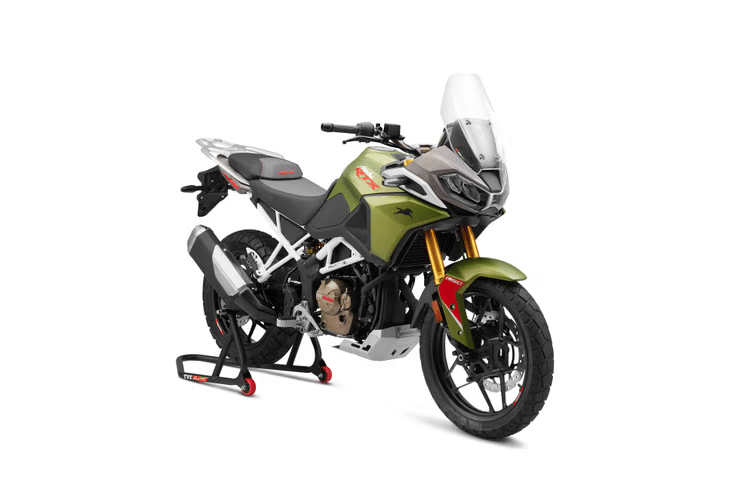
After reshaping India’s performance motorcycling landscape with its Apache series, TVS Motor Company has now turned its attention to the rapidly expanding adventure touring category with the launch of the Apache RTX 300, marking its first foray into the segment.
The company says the move is aimed at “democratising adventure motorcycling”, bringing premium rally-tourer capabilities within reach of a wider audience, much as it did with performance bikes over the past two decades.
“We are constantly studying evolving customer needs, not just to participate in those trends, but to redefine them,” said Gaurav Gupta, President of TVS Motor’s India two-wheeler business. “Apache has always stood for performance and aspiration, and with the RTX, we aim to carry that spirit into the world of adventure motorcycling.”
Renault Kwid facelift revealed with EV power
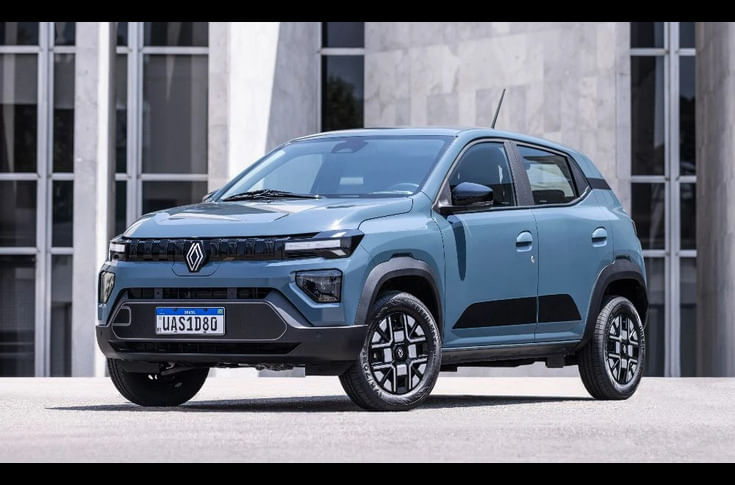
Renault has released first set of details and images of the refreshed Kwid EV, known as the Kwid E-Tech in Brazil, revealing the first set of images and technical details. The updated entry-level model from Renault is essentially a badge-engineered version of the Dacia Spring EV. It rivals models like the Citroën eC3 and other budget EVs in global markets.
The 2025 Renault Kwid EV features a sharper and more angular design, drawing heavy influence from the latest Dacia Spring EV, yet retaining distinct Renault styling cues. The closed-off rectangular grille now gets vertical slats, flanked by new projector headlamps and a redesigned bumper with more pronounced cuts and creases.
Blue Energy Motors Targets 30,000 e-Trucks and $3 Billion Revenue in Five Years
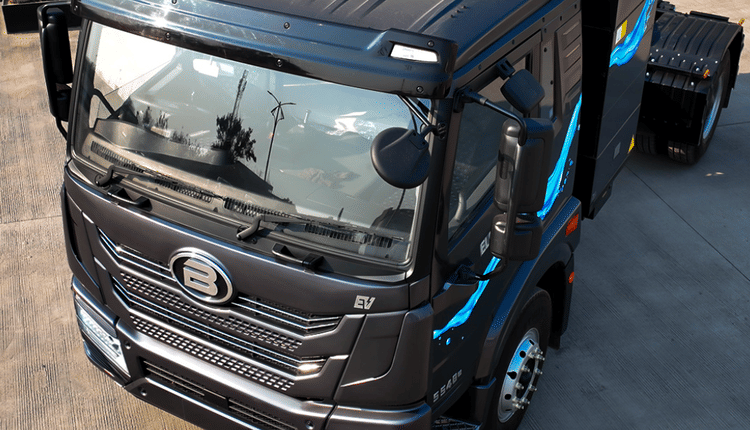
Blue Energy Motors is placing an aggressive wager on India’s transition to electric trucking, laying out plans to capture $3 billion in revenue over the next five years. This ambitious financial target hinges on achieving a corresponding sales goal of 30,000 EV trucks during the same period.
To realize this vision, the company is preparing for a massive infrastructure rollout and component localization push. Blue Energy Motors is currently finalizing plans with the Maharashtra government for a substantial Rs 3,500 crore investment designed to develop a comprehensive electric vehicle ecosystem. The company has so far raised about $50 million in funding to expand its business in India.
“We have set ourselves a target of 30,000 EVs over five years. That’s the vision we’ve set up,” confirmed Anirudh Bhuwalka, Founder and Managing Director of Blue Energy Motors. He stated that hitting this volume threshold means, “in five years, if you do 30,000 trucks, that’s going to be $3 billion in revenue.”
Ashok Leyland Secures 1,937-Bus Order from Tamil Nadu Transport
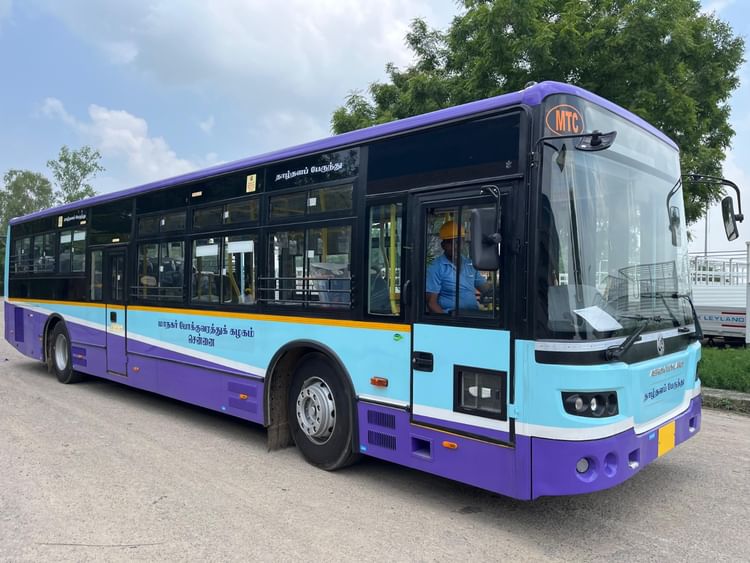
Ashok Leyland has secured an order to supply 1,937 buses to Tamil Nadu State Transport Undertakings (TNSTU), marking a significant expansion of the commercial vehicle manufacturer’s presence in the state’s public transportation network.
The order encompasses a variety of bus configurations designed for different operational requirements, including town services, mofussil routes, and long-distance SETC applications. All vehicles will be equipped with iGen6 BS VI technology and built on AIS 153-compliant chassis platforms to meet current Indian safety and performance standards.
The deal adds to Ashok Leyland’s existing fleet of over 21,000 buses already operating under TNSTU.
Electric Car Festive Sales Set to be The Highest, Says SIAM President
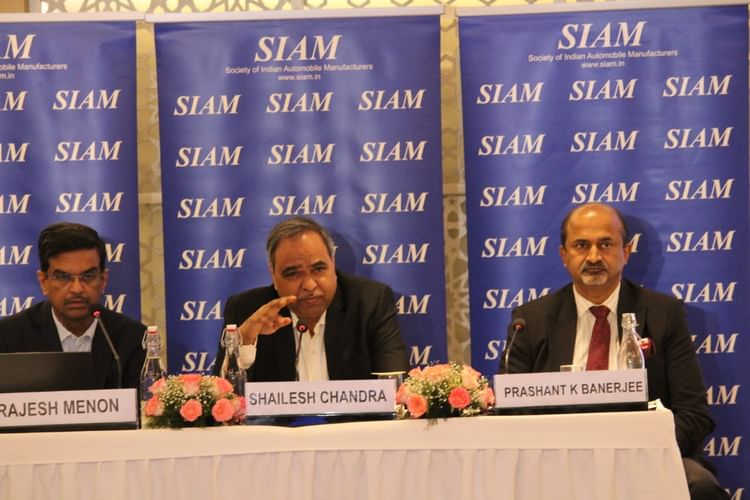
India’s electric vehicle segment is gearing up for its strongest festive season yet, fueled by several new launches and broader industry participation.
SIAM President Shailesh Chandra noted that while EV growth may appear slower month-on-month compared to ICE vehicles due to pent-up demand in the latter, overall momentum for EVs remains very strong, supported by multiple new launches and increased industry involvement.
Chandra also said the festive period for electric vehicles could be the “highest ever” for the passenger vehicle industry in terms of volumes.
Top 10 Compact SUVs in H1 FY2026: Tata Nexon to Mahindra Thar
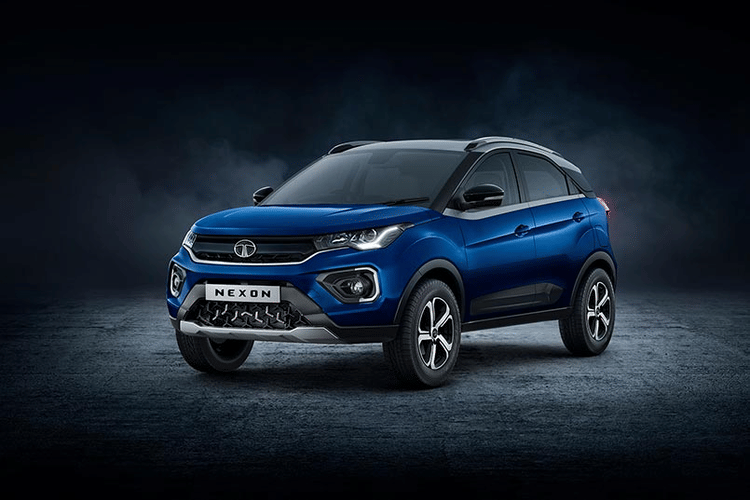
Small can also be big in the Indian SUV market. Of the nearly 100 utility vehicles and 1,000-plus variants in the domestic market, compact SUVs account for 21 models and a humongous number of variants. Of these models, 10 have made their mark in the first six months of the current fiscal year 2025, accounting for an estimated 542,747 units or 85% of the total 634,300 compact SUVs sold in April-September 2025.
The 634,000 compact SUVs sold in H1 FY2026 are, however, down 5.56% YoY (H1 FY2025: 671,674 units). Nevertheless, they account for 47% of the total 1.35 million (13,53,270 UVs) sold in H1 FY2026.
Let’s take a closer look at the Top 10 movers and shakers in this sub-segment where the SUVs are less than 4,000mm long.
Ola Electric Enters Battery Storage Market with Shakti Launch

Ola Electric announced its entry into India’s battery energy storage systems market on October 16, 2025, with the launch of Ola Shakti, a residential power backup solution. The move marks the company’s expansion beyond electric vehicles into the energy storage sector.
The Bengaluru-based company introduced four variants of the product, priced between Rs 29,999 and Rs 1,59,999 for the first 10,000 units. The battery systems are available in capacities ranging from 1.5 kWh to 9.1 kWh, designed for homes, farms, and small businesses.
Gabriel India, SK Enmove Form JV to Enter ₹40,000 Crore Lubricants and EV Fluids Market
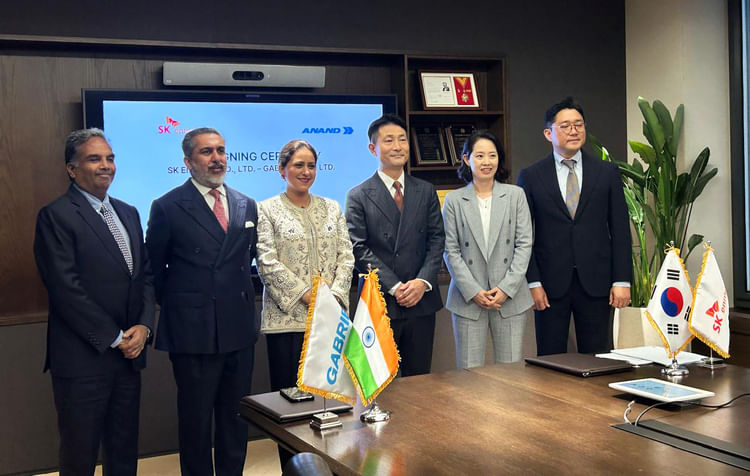
Gabriel India Limited (GIL), the NSE-listed flagship of the $2.4 billion ANAND Group, has entered into a joint venture with SK Enmove, a subsidiary of South Korea’s SK Group. The partnership marks Gabriel India’s formal entry into India’s fast-growing lubricants and EV fluids market, valued at approximately ₹40,000 crore.
The new entity, “SK Enmove Gabriel India,” will be majority-owned by SK Enmove with a 51% stake, while GIL will hold the remaining 49%. The venture includes the establishment of a greenfield manufacturing facility and the acquisition of SK Enmove’s existing Indian operations, providing immediate market access. Operations are expected to begin in December.
CEAT Posts 14.2% Rise in Consolidated Revenue in Q2 FY26
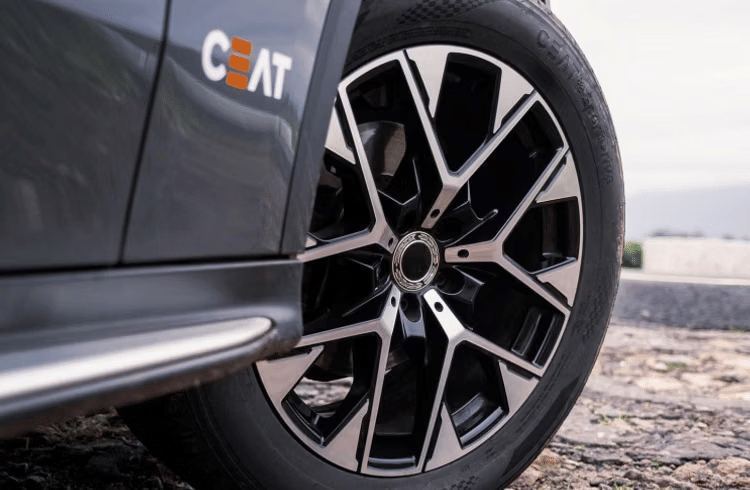
CEAT Limited, an RPG Group company, reported a consolidated revenue of ₹3,772.7 crore for the quarter ended September 30, 2025, marking a 14.2% year-on-year increase. The company’s EBITDA margin for the quarter stood at 13.5%, while net profit was ₹185.7 crore.
On a standalone basis, CEAT reported revenue of ₹3,701.1 crore, up 12.2% from the same period last year. The standalone EBITDA margin was 13.7%, and net profit came in at ₹202.2 crore.
Arnab Banerjee, Managing Director and CEO of CEAT Limited, said, “We have maintained strong growth this quarter, with revenue rising by approximately 12%. One of the key developments has been the reduction in GST rates on tyres and vehicles, which we expect to positively impact demand across domestic categories. Another important milestone was the full integration of Camso into the CEAT family effective September, supporting our premiumisation strategy globally. With the positive momentum, we look forward to double-digit growth in the second half of the year.”
Landmark Cars Reports Record 30% YoY Revenue Growth in Q2 FY26
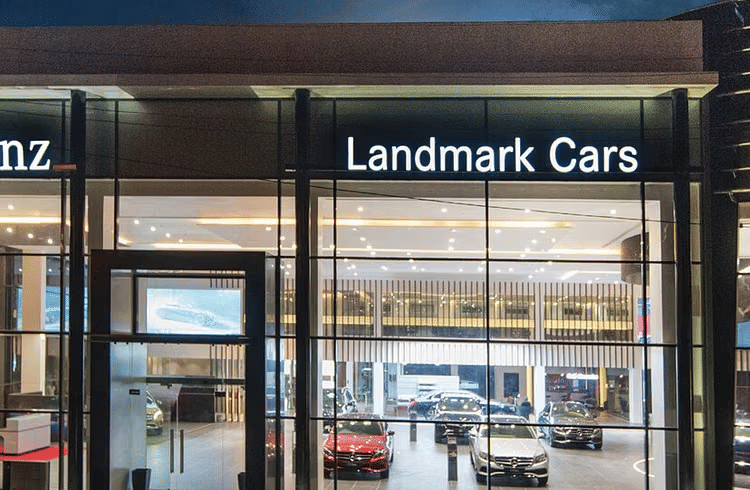
Landmark Cars Limited reported a consolidated revenue of ₹1,655 crore for Q2FY26, marking a 30.52% year-on-year increase from ₹1,268 crore in Q2FY25 and a 16.96% sequential rise from ₹1,415 crore in Q1FY26. This is the company’s fastest quarterly growth since listing, driven by outlet expansion and festive demand during Navratri.
Vehicle sales, including agency and pre-owned units, accounted for ₹1,403 crore, up 35.03% year-on-year, while after-sales, spares and other services brought in ₹252 crore, reflecting a 10.04% increase.
The company said demand remained strong despite a temporary deferment of purchases ahead of the mid-August GST rate cut announcement, which came into effect on 22 September 2025. It described the GST reduction on ICE vehicles as a “pathbreaking measure” expected to support sustained recovery in demand.
Bombay High Court announces Rs 6 lakh compensation for pothole deaths in the city
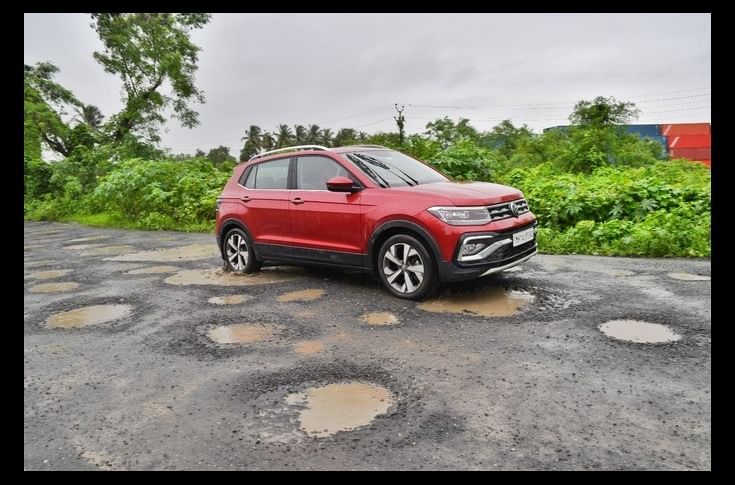
The Hon. Bombay High Court took strong exception to the poor condition of Mumbai’s roads, saying there can be “no justification for bad roads” in India’s financial capital. The court directed that a compensation of Rs 6 lakh be paid in every case of death caused by potholes, open manholes or other civic lapses, holding civic bodies accountable for such negligence.
A division bench of Justices Revati Mohite Dere and Sandesh Patil, hearing a clutch of public interest petitions, observed that citizens have a fundamental right to safe and motorable roads and that the government and municipal corporations are duty-bound to ensure the same.
“Deaths and accidents caused due to potholes, open manholes and neglected roads have become a regular occurrence. Accountability has to be fixed on those responsible,” the bench remarked, expressing concern over repeated incidents despite earlier court interventions.
Features and Interviews
GST 2.0’s Long-Term Growth Impact Explained
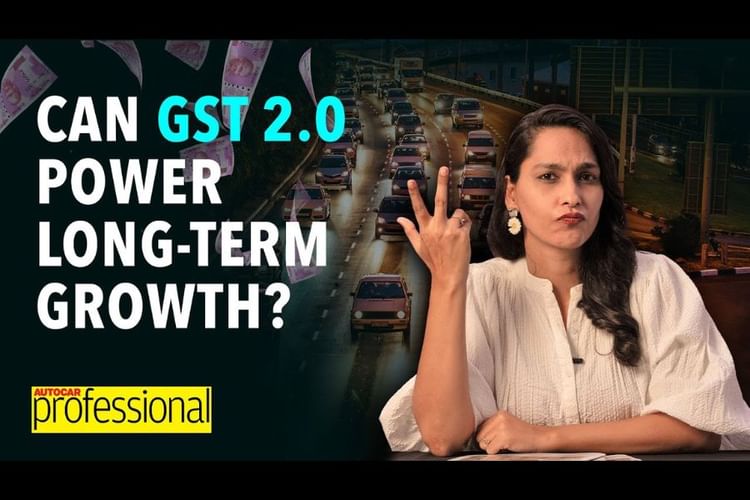
With GST 2.0, small cars are suddenly more affordable, bigger SUVs face mixed effects, and dealers are navigating unexpected challenges. But is this just a temporary festive spike or the start of a sustained growth journey for India’s auto market?
How Tamil Nadu’s Auto Skills Revolution Is Building India’s EV-Ready Workforce
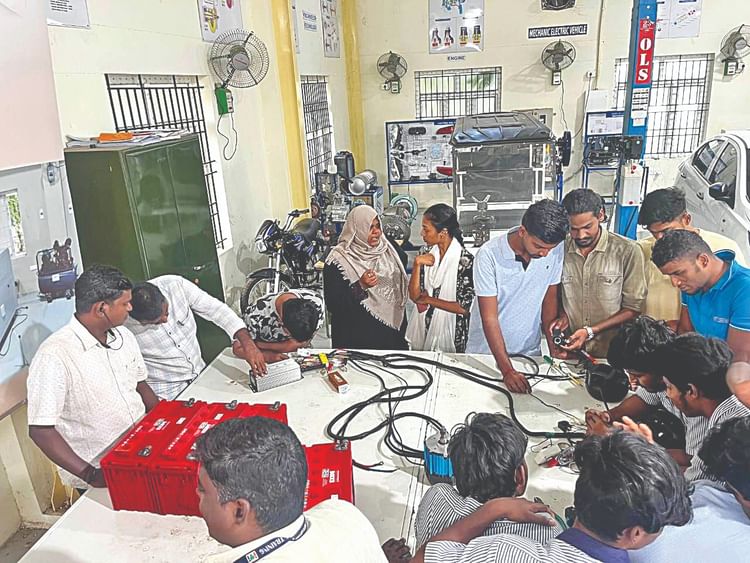
In small training centers across Tamil Nadu, the hum of robotic arms blends with the chatter of trainees learning to repair vehicles. For many of the students, these government and privately-run Industrial Training Institutes (ITIs) offer the first exposure to automation, before any of them step into a factory or workplace.
They are also critical pieces of a quiet skilling revolution taking shape in Tamil Nadu. The so-called “Detroit of Asia”, as the state prepares its youth for an electric, connected, and software-defined mobility future. The initiative is designed to enable the automotive industry to make the transition to newer technologies and platforms.
The effort is spearheaded by the Tamil Nadu Apex Skill Development Centre for Automobile (TN AutoSkills) under the Tamil Nadu Skill Development Corporation (TNSDC).
Auto Industry Must Double Manufacturing Footprint in 5 Years, with Localization as the Key: ZF Group’s Akash Passey
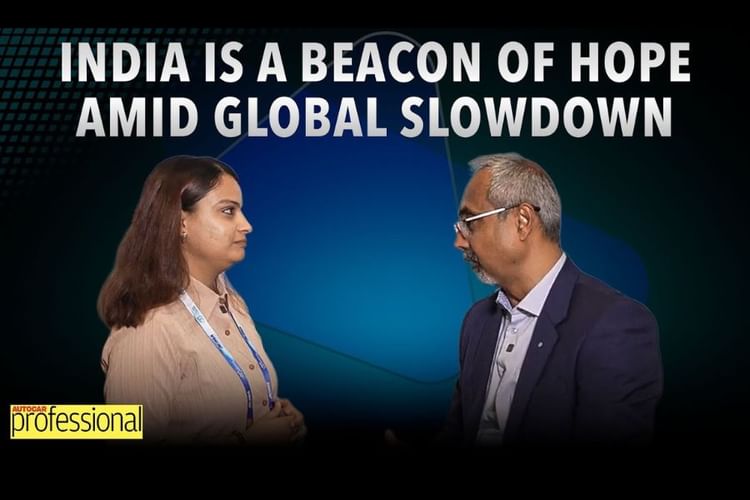
In this conversation with Akash Passey President, ZF Group India, he talks about Tier 2, Tier 3 suppliers and startups being crucial for growth and innovation. He talks about how collaboration cuts design-to-output time and speeds market response. India is a beacon of hope amid global slowdown, according to Passey.
He adds that GST rationalization is welcomed because of which the last two quarters will do much better this year. He also says that there’ll be cash flow to support PV, CV and CE sales.
Our Aim is to Localize More to Build Self-Reliance: Varroc’s Arjun Jain

In this insightful conversation, Arjun Jain, CEO – India at Varroc sheds light on the opportunities and challenges shaping India’s auto component sector. With more than two-thirds of revenue driven by 2- and 3-wheelers, consistent demand trends continue to support growth. The discussion highlights why cleaner and greener vehicles are the future, how technology self-reliance and localisation across the supply chain are critical, and why India is well-positioned globally in the automotive landscape.
IndianOil Partnership to Power SUN Mobility’s Pan-India Scale-Up, Chetan Maini says
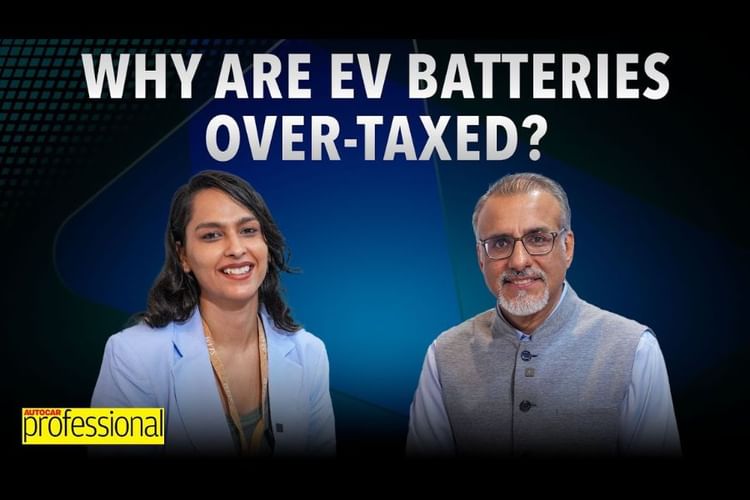
In this conversation, Chetan Maini, Co-Founder & Chairman of SUN Mobility, explains how GST 2.0 is narrowing the cost gap between internal combustion engine (ICE) vehicles and EVs, while calling for a fix to tax anomalies — EV batteries at 18% GST versus vehicles at 5%. He stresses the need for sustained policy support to accelerate the shift to zero-emission mobility, noting that intermediate technologies only reduce fuel use rather than eliminating emissions.
Automation, Connected Mobility and Electric Vehicles Are Defining Shifts in the Industry – Continental India
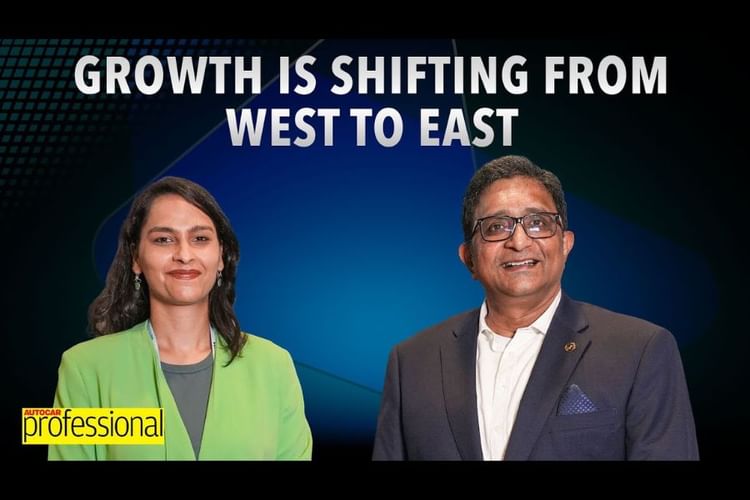
In this exclusive conversation with Prashanth Doreswamy, President & CEO of Continental India, we dive into the big trends shaping India’s automotive industry. From GST’s positive impact on tractors and 2-wheelers to the rise of consumption-driven growth, Doreswamy outlines how the next decade will bring both opportunities and challenges.
Fully Prepared to Meet all EV Requirements Across Segments: NBC Bearings’ Lokesh Agrawal
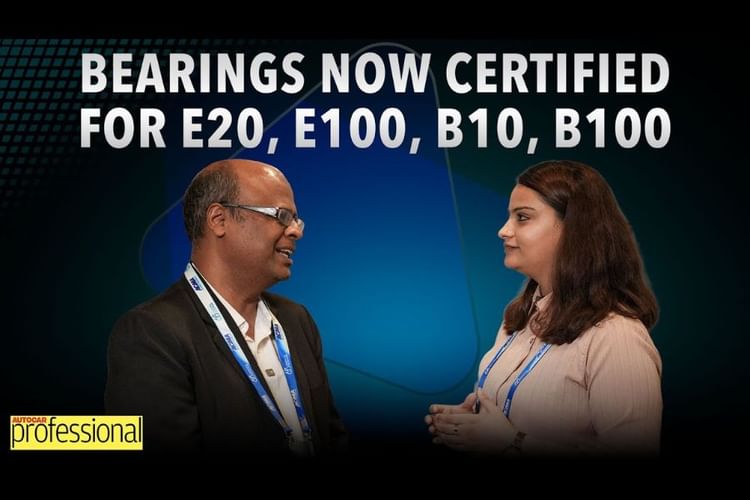
In this interview with Autocar Professional, Dr Lokesh Agrawal, CTO of NBC Bearings, discusses the latest trends shaping the bearings industry, especially for electric vehicles (EVs). He highlights three key trends: lightweighting, low-friction technology, and advanced materials, noting that while lightweighting doesn’t significantly raise costs, low-friction technology may.
Agrawal also emphasizes that advanced bearing materials are largely made in India, and NBC Bearings is fully prepared to meet the high-speed, low-noise requirements of EVs across all segments.
Opinions
Pushing the Boundaries of Automotive Data with Agentic AI
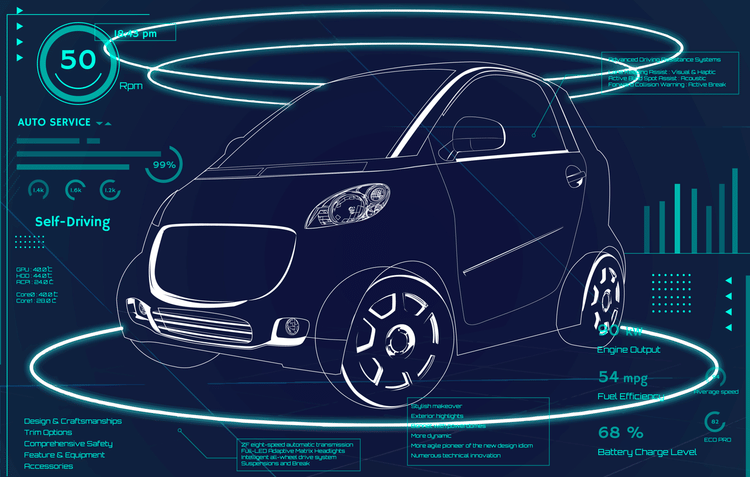
The automotive industry has always been data-driven. From design and engineering to marketing and after-sales, data determines nearly every decision a manufacturer or dealership makes. But the kind of data that powers the industry is changing. Historically, automotive brands have relied on structured data such as CRM fields, form fills, and website analytics to understand buyers. While this data tells us what customers do, it rarely tells us why.
That gap between “what” and “why” is where Agentic AI is starting to make an impact.
How Tier 2 & 3 India Is Driving the Electric Two-Wheeler Revolution
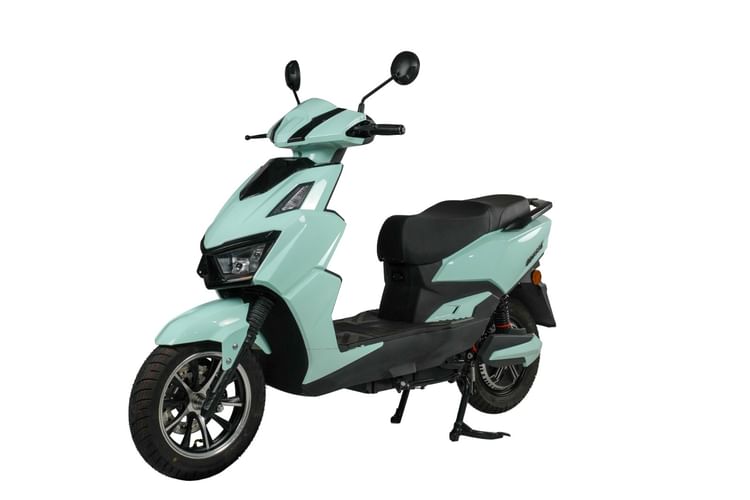
The electric two-wheeler (E2W) revolution in India has spread and has penetrated beyond the country’s major cities. The real transformation is now taking place in Tier 2 and Tier 3 cities of India, where expanding urbanisation, affordability, improving infrastructure, and supportive policies are combining to reshape mobility. These regions, which were once regarded as the backbone of India’s economic growth, are now also emerging as major catalysts of electric mobility adoption.
Battery Recycling: A Strategic Opportunity for Automakers to Meet Green Targets
As India accelerates toward an electric mobility future, automakers find themselves balancing rapid growth with the need to meet sustainability and compliance goals. While electric vehicles address tailpipe emissions, the question of what happens to the batteries at the end of their lifecycle has become increasingly critical. The answer lies in building a circular value chain through scientific battery recycling, a solution that simultaneously supports net-zero ambitions, reduces costs, and secures vital raw materials for the long term.